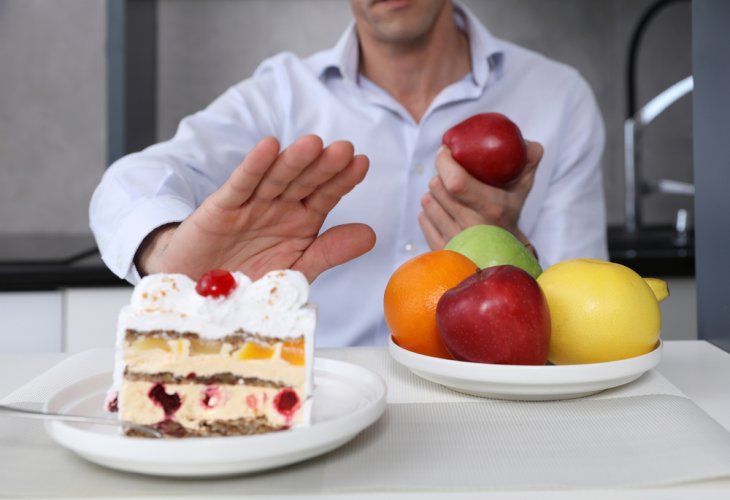Try This: Unusual Tricks to Resist Carbs
You've tried chewing gum and drinking water, but that cake keeps calling your name? A new study reveals some unexpected strategies.
 (Photo: Shutterstock)
(Photo: Shutterstock)Can anyone truly say no to a slice of cake, decadent chocolate, or freshly baked cookies? Raise your hand.
According to a study presented at the annual Obesity Society conference in Boston, there's a way to overcome uncontrollable hunger pangs – simply by tricking our brains.
The researchers tested three short methods, each lasting about 30 seconds, designed to engage the brain and distract from eating.
The first method is tapping your forehead with your fingers.
The second method is tapping your ear.
The third method is tapping the floor with your big toe.
Meanwhile, the control group was instructed to stare at a blank wall.
The study involved 55 individuals with high overweight levels, who were asked to think about food and to imagine its smells and tastes.
Participants rated their desire for the food before and after the experiment on a scale of 1 to 10. All short methods proved effective, but forehead tapping was the most successful in delaying gratification.
Rabbi Zamir Cohen - What does a person gain from self-control and delaying gratification?
Real Change Requires a Long Process
The researchers noted that methods involving bodily movements like tapping the forehead, ear, or floor, proved more beneficial than staring at a wall.
Richard Weil, who authored the study and heads obesity management at St. Luke's-Roosevelt Hospital in New York, explained that engaging the motor cortex (part of the brain's cortex) through movement distracts the brain. Moreover, there’s no need to tap the forehead for 30 seconds; even 10 seconds can help somewhat.
Is this an immediate transformation from impulsive eating to delayed gratification behavior? According to Dr. Chris Hoeknerr, a psychology expert in New York, these are extended, deep processes, not quick transformations: "Sometimes, it's beneficial to try and delay gratification related to food. Over time, people need to make real changes, or else they'll feel trapped in a diet prison and eventually seek a way out."
The Marshmallow Test: Can a child resist the challenge? You won’t stop laughing

